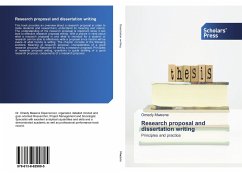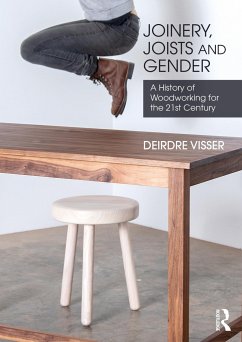
Challenge based & activity based learning
On technical college student
Versandkostenfrei!
Versandfertig in 6-10 Tagen
51,99 €
inkl. MwSt.

PAYBACK Punkte
26 °P sammeln!
This study adopted quasi-experimental research design, precisely, pre-test, post-test nonequivalent control group design The study constituted a total number of 122 subjects, 63 for the Challenge based learning, while 59 for the activity-based learning. The instruments used for data collection were Woodwork Cognitive Achievement Test (WCAT), Woodwork Psychomotor Achievement Test (WPAT) and Woodwork Interest Inventory (WII) items. Other instruments used were the challenge-based and activity-based learning lesson plans. The instruments were also subjected to face validation by five experts in wo...
This study adopted quasi-experimental research design, precisely, pre-test, post-test nonequivalent control group design The study constituted a total number of 122 subjects, 63 for the Challenge based learning, while 59 for the activity-based learning. The instruments used for data collection were Woodwork Cognitive Achievement Test (WCAT), Woodwork Psychomotor Achievement Test (WPAT) and Woodwork Interest Inventory (WII) items. Other instruments used were the challenge-based and activity-based learning lesson plans. The instruments were also subjected to face validation by five experts in woodwork technology from Department of Industrial and Technology Education, Federal University of Technology Minna and woodwork technology teachers at Government Technical Colleges in Niger State. Mean was used to answer the research questions; while ANCOVA was employed to test the hypotheses. The study revealed that students taught woodwork using the challenge-based learning instructional approach had a higher mean score than students taught using the activity-based learning teaching method in cognitive achievement test, psychomotor achievement test and test for retention of learning














